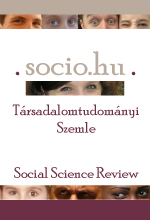Trade unions in CEE and SEE. Modernisation or sinking into insignificance?
Trade unions in CEE and SEE. Modernisation or sinking into insignificance?
Author(s): Jochen TholenSubject(s): Labor relations
Published by: MTA TK Szociológiai Intézet
Keywords: labour relations; trade unions; Central East and Southeast Europe; transformation process; European Social Model
Summary/Abstract: This article focuses on trade unions as important stakeholders in the system of labour relations in the countries of Central East and Southeast Europe, namely Poland, Czech Republic, Slovakia, Hungary, Bulgaria, Croatia, Serbia, the Former Yugoslav Republic of Macedonia – now North Macedonia, Albania and Kosovo. Our hypothesis is that the development of trade unions in these regions, with their traditional company-centred organisation (syndicalism), is embedded in a discrete Central Eastern and South Eastern European type of neo-liberal economy. The cleavage of the EU in the East and West goes far beyond labour relations and the development of trade unions and determines other societal fields as well. This empirical evidence comes from a multi-level evaluation of a prolonged consultancy project (1998–2013) involving German, Dutch, European and global trade unions and political foundations and aimed at modernising selected trade unions in the CEE and SEE countries. Beyond the necessary analysis of documents, 92 expert interviews with trade unionists, representatives of employers’ associations and politicians were carried out between 2009 and 2013. The results were presented and discussed in five regional conferences involving different country groupings; these discussions influenced the final results by way of a reflexive process. In summary, because of the faltering process of modernising trade unions in these regions, the trade unions are endangered and may sink into insignificance.
Journal: Socio.hu Társadalomtudományi Szemle
- Issue Year: 9/2019
- Issue No: Spec 7
- Page Range: 28-48
- Page Count: 21
- Language: English

